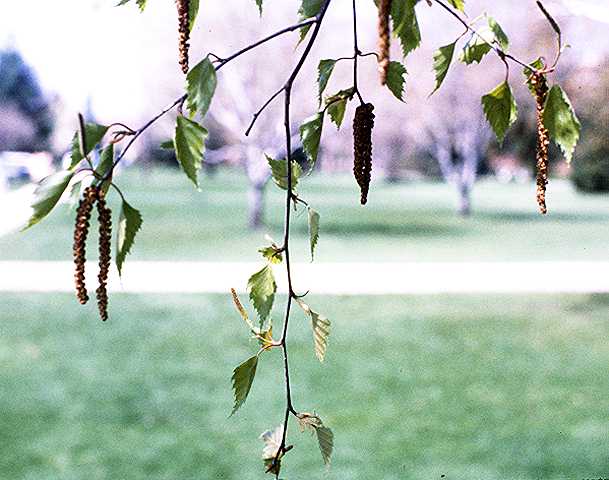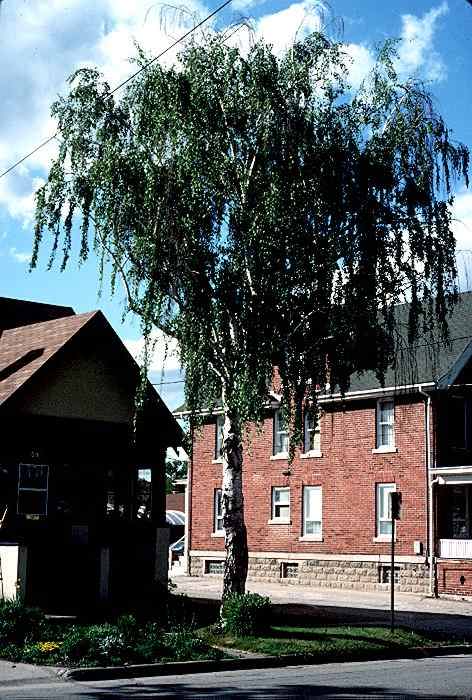
Photos ©1999 University of Wisconsin
Madison, Plant Image Collection.
Click any photo for a larger image


Photos ©1999 University of Wisconsin
Madison, Plant Image Collection.
Click any photo for a larger image

Silver Birch - Betula pendula
Family - Betulaceae
Also known as - Warty Birch, Irish Beith
Slender tree growing to 25m (82ft) with white or silver–grey bark on a trunk that peels transversely in thin paper like bands, widespread and common throughout Britain, Ireland and most of Europe to parts of Asia. I has a rapid growth for first 20 years and is regarded as at mature at 40 years with a maximum age of 60–80 years. Seldom planted in the UK although it is a major timber species in Scandinavia, it is important for conservation use in woodland. Tolerates a range of habitats, but best on dry sandy soils and up to higher altitudes than most broad leaved species. Upland Birch woods are an important ecotype in Scotland.
Triangular shaped leaves with pointed tips and serrulate edges turning yellow in the autumn, appear at the same as male and female pendant catkins, yellow anthers and purple stigmata (April to May). Pioneer and light demanding species, abundant growth in forests, on heathland and slopes, often cultivated. Normally grown from seed although can be grown from cuttings, the seeds are brown flakes with yellow centres and are wind dispersed sprouting the following spring in crevices or clear damp earth. Seeds are consumed by small birds.
Pale white timber is easily worked and is flexible and tough but not very strong, with trees in Britain commonly being rotten in the centre reducing the trees usefulness. Good for firewood and pulpwood, treated wood can be used for fence posts. Used in turning and formerly for cotton reels and bobbins. Twigs are used for making brooms - Besoms.
Related Species: Downy Birch – B. pubescens which has more horizontal branches and leaves, the young twigs are hairy. A dwarf species B. nana found on mountains in Scotland.
BCP do not advise or recommend that Silver Birch – Betula pendula is eaten or used as an herbal remedy. Apparently a wine fermented from the sap was credited with medicinal properties whilst the wood and bark can be distilled to give birch tar, used make leather waterproof. The young leaves are a diuretic.
Site design ©1999– Brickfields Country Park - Privacy -